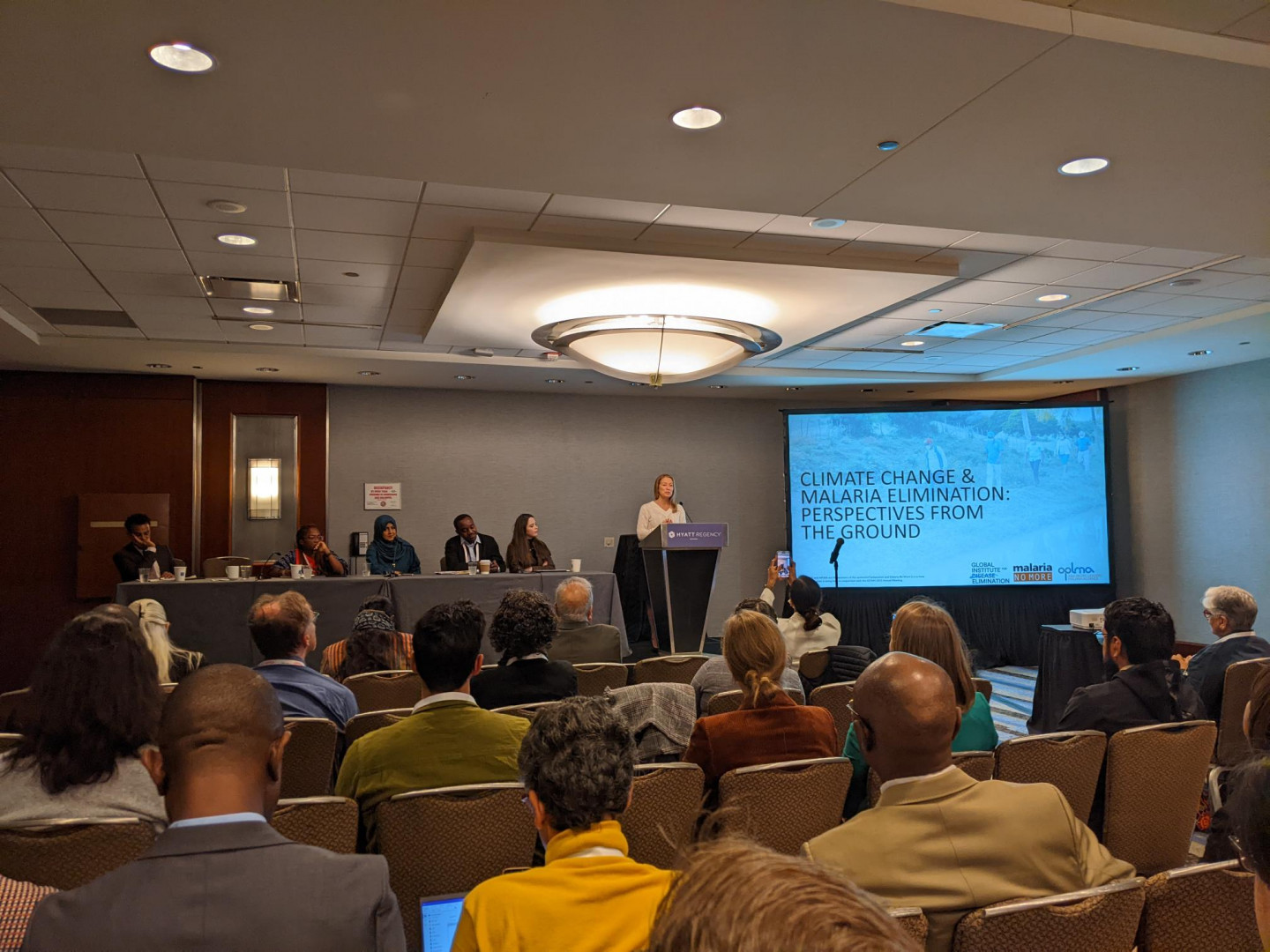As part of Forecasting Healthy Futures’ mission to support emerging researchers at the intersection of climate and health, we spoke to Ekuwa Adade, a doctoral researcher at Brunel University London, and a member of the IMACS Expert Network. Adade, who is researching climate sensitive diseases, recently launched a malaria modeling project as part of her doctoral research focused on her home country, Ghana. IMACS is mentoring Ekuwa in understanding and comparing different time series models and helping advance her skills in integrating climate and malaria surveillance information using advanced machine learning.
Experts Discuss Accelerating Support to Build Healthy & Climate-Resilient Cities During WHA77
On the sidelines of the 77th World Health Assembly, Forecasting Healthy Futures hosted an event entitled “Healthy & Resilient Cities Worldwide: Clearing the social and financial hurdles to integrate and scale sustainable urban innovations”, in partnership with Reaching the Last Mile. The discussion examined the health impacts of climate threats as experienced in urban settings around the world, and the innovative efforts underway to build sustainable and resilient cities.
KORIKA & BMKG Partnership Expands ClimateSmart Indonesia Initiative
The Institute for Health Modeling and Climate Solutions (IMACS) today announced a new strategic partnership and milestone in the expansion of its ClimateSmart Indonesia Initiative, which was recently launched in partnership with the Indonesian government with the goal to ‘climate-proof’ the national health system.
New Global Campaign, The Face of Change, Launches Ahead of Historic COP28 Health Day to Tackle the Climate-Driven Health Crisis
Ahead of a historic, first-ever Health Day during the 28th United Nations Conference on Climate Change (COP28) in Dubai, Forecasting Healthy Futures—in partnership with TIME CO2—announces the launch of a bold and ambitious global campaign - The Face of Change - that centers health as the human face of climate change. With a focus on real and relatable stories, proven, ready-to-scale solutions and open-source creative content to amplify and activate, the campaign aims to inspire a global movement to save millions of lives today from the direct health impacts of climate change while protecting the health of billions of others by accelerating action to arrest global warming.
The Climate and Us: New BBC Streaming Series Tackles Health Impacts of Climate Change
With the 28th annual United Nations (UN) climate meeting weeks away, a groundbreaking new series of films, now available online, explores the urgent health challenges posed by climate change.

UN General Assembly: World Leaders & Experts Spotlight Climate-Health Intersection
This week, during the 78th United Nations General Assembly and New York Climate Week, global leaders and health experts descended on New York City, putting a spotlight on the impacts of climate change on human health.

2023 Africa Climate Week: Experts Discuss Climate-Health Solutions Ahead of COP28
During the 2023 Africa Climate Summit and Africa Climate Week, Forecasting Healthy Futures hosted an event entitled “Climate Health Solutions: Close Up – Putting a Human Face to the Climate Imperative,” convening African global health leaders and other climate stakeholders to begin more constructive dialogue about the common health challenges and opportunities those communities face in the context of global warming.
INTERESTED IN LEARNING MORE?
We’d love to hear from you. Please use this form to send us a message.

Website powered by
